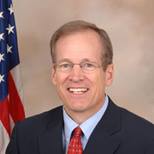In 2010 SCOTUS came down with the Citizens United v. Federal Election Commission I made the prediction that declaring that corporations were ‘persons’ and had The First Amendment right to Free Speech would have unintended consequences that would come to haunt the Supreme Court.
Congress shall make no law respecting an establishment of religion, or prohibiting the free exercise thereof; or abridging the freedom of speech, or of the press; or the right of the people peaceably to assemble, and to petition the Government for a redress of grievances
This week the first of these consequences has come home to roost for the Roberts Court with the decision by the Court to take up two cases dealing with the rights of a corporation to exercise it’s right to freedom by denying their employees medical insurance that covers several types of birth control. I will not go into the right or wrongs of these two cases here. Rather I will deal with the conundrum the court faces in making any ruling at all.
The problem facing the court can be stated thus:
- Rule in favor of the corporations stating that given that they are legal persons they do have a protected right to practice their religion.
- Rule against the corporations stating that they are not legal persons, overturning/contradicting Citizens United, and they do not have any first amendment rights
- Rule in favor of the corporations stating the decision is based on something other than the person-hood of corporations and their first amendment rights
- Dito option 3 but ruling against the corporations .
- Rule against the corporations, even though acknowledging they are persons for Free Speech but not persons for anything else in the first amendment, or just for religious freedom.
The problem facing the court is as simple as it is difficult to deal with….the court never gave a clear and detailed explanation of why a corporation is a person. Worse it did not show, in anyway, how a natural person implicit rights as enumerated in the 1st amendment is any way different those right implicit to a legal person when they acknowledged that legal persons have the right to free speech.
I shall be very interested in following these cases and see what the court does.
 : “Why should a person working full time have to live in poverty?” For myself I feel that the answer is they shouldn’t have to live in poverty.
: “Why should a person working full time have to live in poverty?” For myself I feel that the answer is they shouldn’t have to live in poverty.

